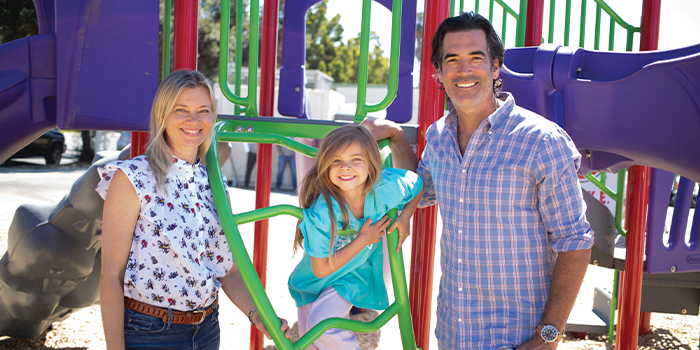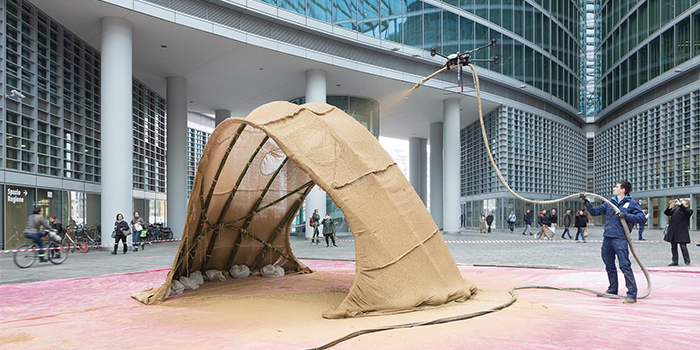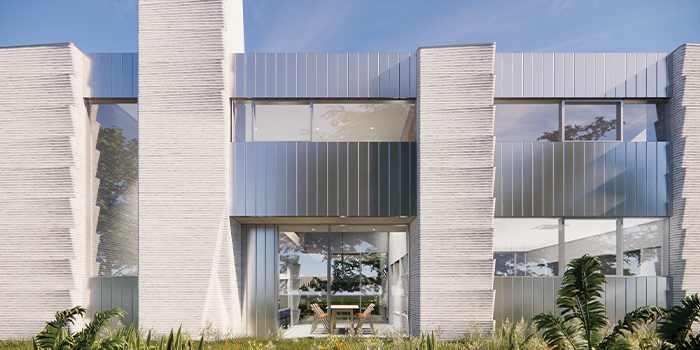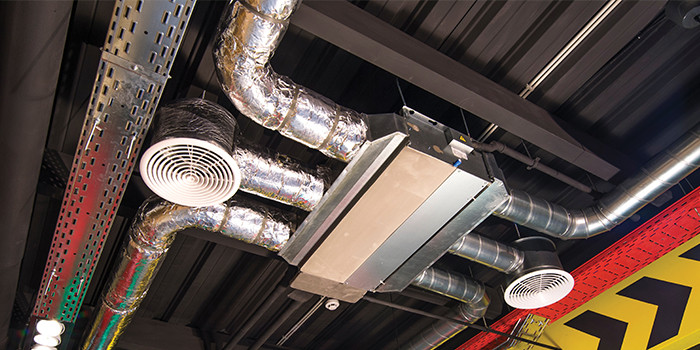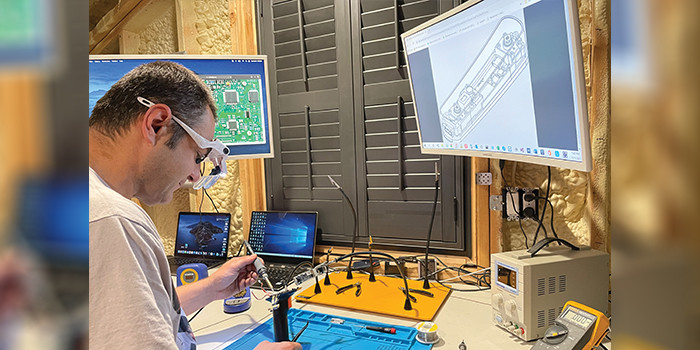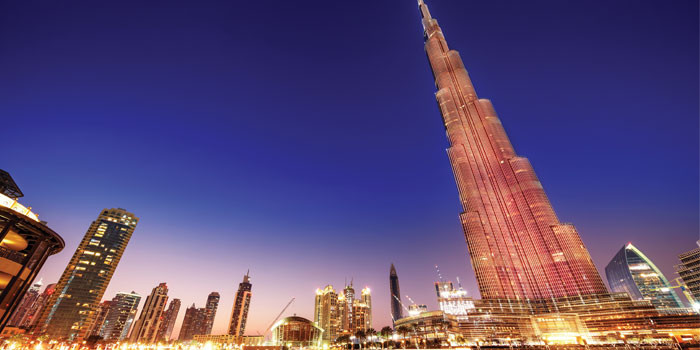
Investing in Infrastructure

Late Summer 2019 - In the Middle East, there has been a mammoth increase in construction over the last fifteen years, opening the door for western companies to have a piece of the action. The Spray Foam Magazine team investigated why working with those markets is lucrative to both the West and Middle East. Focusing on Dubai, the team examines the rapid growth and how western companies may be able to help make these buildings safe, while establishing great partnerships and productive deals.
The United Arab Emirates (UAE) is made up of seven territories located in the northeastern part of the Arabian Peninsula. It’s on the south side of the Persian Gulf with Abu Dhabi as its capital city. The western world has noticed the growth and transformation of the region, and it has been involved with many of the super high-rise buildings, one of which includes the Dubai’s Burj Khalifa, which stands an impressive 830 meters high.
Dubai’s economy from 1975 through to 2019 has been the fastest growing economy in the world, according to a study by the Dubai Economic Council. However, the last 15 years has really had the greatest impact on western construction companies, who have been lending a hand with these builds from architectural design, construction, and safety.
In the past, Dubai has been heavily reliant on their exported natural resources like oil and natural gas. Due to the western world trying to not be so dependent on foreign natural resource imports, the Middle East has also had to shift slightly, so they are not fully dependent on fossil fuels as their main source of revenue. These cities have been making huge investments in the tourism, finance, and construction sectors too. According to Colliers International (a global real estate and management service), material costs are slowly increasing, but this has not hindered the building boom.
Dubai is famous for its towering skyscrapers, mansions, and some of the largest shopping malls in the world. It has an enormous indoor ski slope with real snow, and also an indoor theme park. This is a manufactured city with everything laid out for convenience, including its traffic system.
Western safety Standards Are Helping The Middle East
In the U.S., informed contractors will make sure that their spray foam applicators have a certification. The Center for Polyurethanes Industry (CPI) of the American Chemistry Council Council provide safety, education, and certification programs. There are a number of courses for contractors to take, including SPF Assistant, Installer (Apprentice level), SPF Insulation Master (Advanced), and SPF Insulation Project Manager. At the end of each term, there is a 30 question exam, where scoring 70% or higher will earn the student a certificate, which is valid for two years. After this period of time, they will need to reapply for their certificate.
The Middle East has similar requirements for certification of its contractors, looking to the West to lead the way on application and safety. Due to the growth within the last ten years of the spray foam market, this request has become more dominant. It has filtered down from places like the Department of Defense, who are requiring much stricter application processes and warranties for spray foam products, installed per the manufacturer’s instructions and inspected by a third party.
Due to the real estate and construction surge in the UAE, safety has recently been highlighted. Construction workers not only need to apply these safety measures for their workers, but they also need to be enforced. In the past, workers have complained of feeling uncomfortable, which slows down productivity, or they have felt unsafe with certain measures. This considerably increases the risk of injury and or illnesses on the worksite.
Like the West, the Middle East values safety and quality. The contractors are often local and much like the U.S., they bid to win the job, with as many as twenty insulation companies bidding on a single job. The workers are often from countries like India, who come to live in the Middle East looking for a better life.
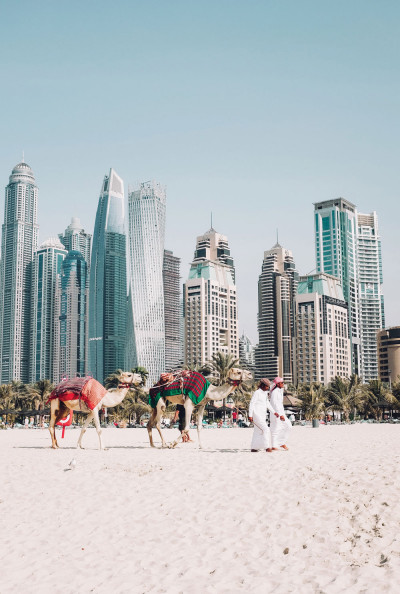
There has been great concern on fire outbreaks within one of these tall structures. This was highlighted after the events of 9/11 in the U.S., with the collapse of the Twin Towers in New York City. Reinforced concrete staircases and refuge rooms constructed of thick concrete provide a little extra time for evacuees to escape the building, and they have been implemented into many of these skyscrapers.
There are multi-alarms including smoke, heat, and optical sensors found in all rooms throughout many of these structures, including the Burj Dubai which has a total of 57 elevators and 8 escalators. The elevators are capable of travelling at 10 meters per second, which makes them among the fastest in the world. These elevators are located within the building’s central reinforced fire-resistant concrete core.
Fire retardant paint helps keep the steel from reaching dangerous temperatures by insulating the substrate. As the flames heat the steel skeleton of the building, the structure loses strength and shape. The strongly bonded fire retardant paint provides a protective coating to endure and stick to the steel without peeling off. Fire retardant paint cannot put out the flames, but it may keep the structure stable until help arrives.
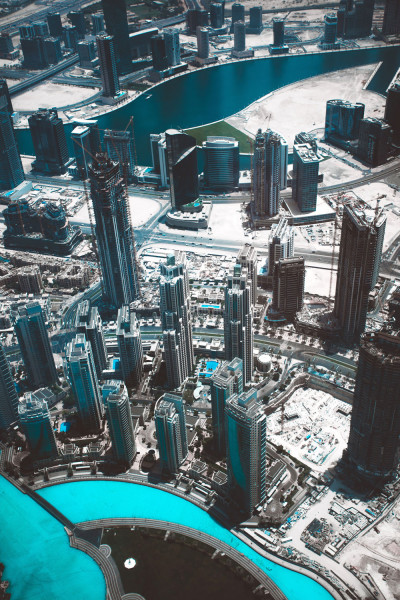
Many of the skyscrapers also have motion detectors to report any unusual structural movement, which may be caused by an earthquake. The Burj Khalifa building has the capacity to withstand earthquakes up to a 7.0 magnitude.
Dubai’s location on a desert overlooking the Arabian sea can get extremely hot—temperatures reaching well over the 100°F mark. Everywhere has air conditioning, with many buildings interlinking, reducing the necessity to step outside. Imagine working in this heat for long stretches of time. During the hottest months, contractors should recommend their workers to complete most of their jobs early in the morning or later in the evenings to stay on schedule.
Understanding Cultural Differences
Conducting business in the Middle East is different to working with most western countries, including the U.S., because of cultural and religious diversity. In order to have good business relations, it is imperative to not only understand the culture, but to respect it too. For instance, the work week is much different to many western countries because Friday is the holy day in Islam. Friday and Saturday are the weekend in most, but not all, Middle Eastern countries.
During the month of Ramadan, the holy month of Muslims, the professional and home lives of the people are put on hold. Fasting from dawn to dusk, business hours are reduced and it’s recommended to avoid meetings during this time. The dates of Ramadan vary year to year and from country to country. This is all due to the lunar calendar, where fasting begins once the correct moon has been sighted in each country. If visiting an Arab country coincides with Ramadan, respect the culture and eat and drink away from the public.
Although many countries in the Middle East are predominately Muslim, there are other religions too. For example, Christmas break may also affect the business calendar. It is imperative to know that Arabic is read right to left, so any company brochures or publicity material printed needs to have the logo on the right hand side.
It is always a respectful gesture to learn some local phrases like “hello,” “goodbye,” “how are you,” and “thank you.” When greeting someone, it is a common practice to shake hands, similar to that of the West, but with one minor detail—make sure the other person pulls their hand away first, which shows a sign of sincerity in the handshake. If the person is a woman, let them reach their hand out first, as a sign of respect.
Like the West, major deals are mainly conducted face-to-face. There is often a light-hearted chat before getting down to business, which is usually a way to find out more about the person being dealt with. When exchanging small talk, keep it lighthearted and remember to be courteous because these countries are conservative.
Exporting to The Middle East
Some U.S. spray foam manufacturers have noticed an increase in demand for their products in the Middle East during the last ten years. They ensure that they keep their commodities at the same price, under the same guidelines, terms and importation tariffs. It is then up to the contractors in these countries to bid for the labor part of the job, for example the installation of insulation.
International Fireproof Technology Inc. (IFTI) is the manufacturer of DC315 intumescent coating (thermal barrier and ignition barrier fire protection for insulation.) Their executive vice president Gary Wolfe states, “In just under five years, we have sold an extensive amount of our DC315 to the Middle East, which is growing rapidly. It’s different from the U.S. and the western markets because it’s less about price and more about the accolades. The local contractors ask questions like,‘Are these products accepted by Certification agencies, such as Dubai’s Civil Defense (The DC315 intumescent coating has this certificate)?’ It’s really about credentials and where the product is manufactured.”
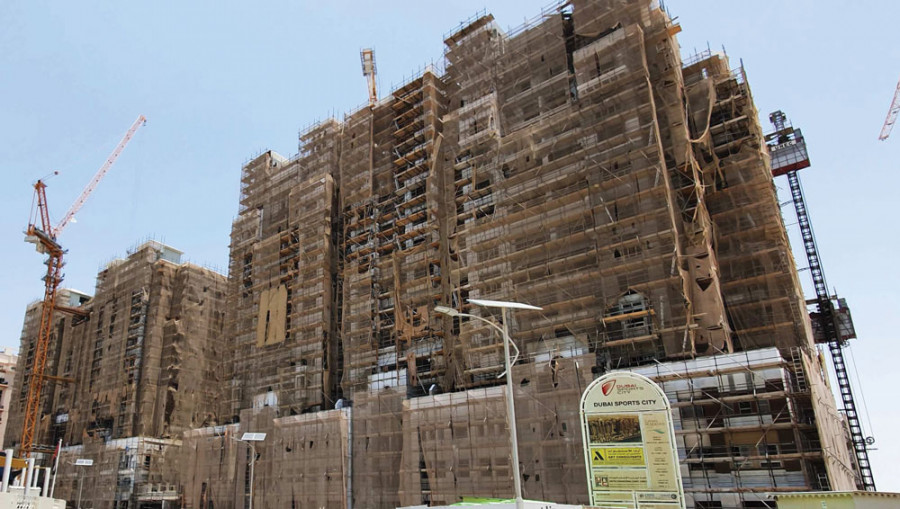
There is a worldwide shift to ensure a manufacturer’s credentials are checked, and the products are fully vetted as part of a manufacturing listing program. In addition to these requirements, all laborers are expected to be certified. Wolfe explains, “As a manufacturer with a new product, when we enter the testing phase, the first thing we do is to set ourselves up with a third party quality assurance and listing company. We then complete a certified product manual for these inspectors. This manual is obviously top secret, and it is hand-delivered and put in a safe. The inspectors will analyze and make sure the product meets all the guidelines. These third party inspectors will also visit the manufacturing site often unannounced. This also includes an audit taken every ninety days. They will literally walk through the warehouse, pull out a random pallet and say, ‘We are running a full inspection on this’. If any of those products are outside the norm, or they do not have the credentials on them, the business is literally shut down. It’s a big deal.”
When exporting a product to the Middle East, there is a listing system to ensure the quality of the product. It is marked with a label from a globally recognized inspection company, and it ensures the contractor, the inspector or the fire marshal knows the product inside the exported, sealed container/pallet has passed the diligence of an inspection. To back this up, the location receiving the goods, in this instance Dubai, will require their own third party evaluation report. This report checks the product has passed the testing, in addition to including instructions on application rates and procedures for using the product.
Investing in infrastructure projects promotes the West and the East to join forces to break architectural boundaries, build dreams and create the impossible. As long as safe and high quality materials are installed, this looks to be a prosperous future for all involved.


